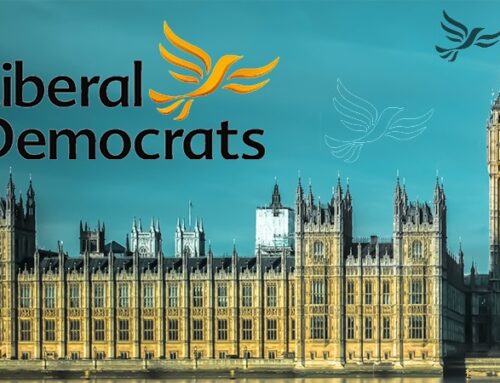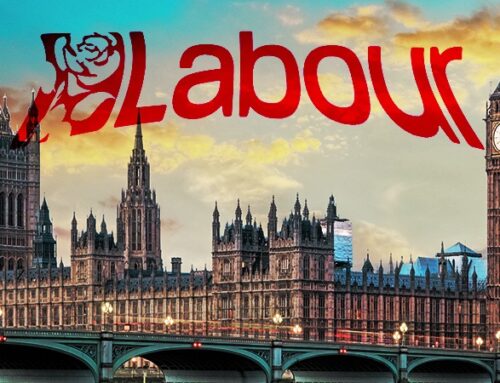Today Ofgem has written to suppliers to outline its response to current market conditions. It is difficult not to conclude that the regulator is inhabiting some strange alternative reality in which the usual rules of economics don’t apply – its proposals to consult on updating the price cap methodology with a view to implementing change in April are too little, too late.
As I set out in my recent post, I do not believe that Ofgem is meeting its statutory obligations under the Domestic Gas and Electricity (Tariff Cap) Act 2018, and in fact, allowing a situation where the cap is set at a level which forces suppliers to sell at a loss, means many suppliers are closing which also contradicts the obligations placed on Ofgem by the Utilities Act 2000, namely to regulate the market in a way which (where possible) promotes competition. Causing the number of suppliers to fall dramatically, potentially only to those who were or are incumbents in their home markets, seems to me to be the very opposite of what is envisaged under the Act.
Ofgem’s letter goes on to outline its desire to tighten up requirements for suppliers to demonstrate financial resillience and the fit and proper status of their senior managers. At this point it is reasonable to question whether Ofgem itself is fit and proper – I remain of the view that regulation of retail energy markets should be moved to the Financial Conduct Authority.
So, following the recent vogue for open letters, I have written one of my own to Ofgem, asking the regulator to explain why it is not using its powers under the price cap legislation to review the cap more frequently and maintain it at a level which meets all of the objectives set out in the Act. I have sent the letter under Ofgem’s complaints procedure which means I should receive a response sometime in the next month – hopefully I will be able to publish the response.
Here is my letter:







As usual, short sighted Govt policies lead to unforeseen consequences. As you say, logically OFGEM should recommend a new price cap – however politically this would be toxic. Sharma has already vetoed this (although U-turns are always in vogue) and would not want to upset the public ahead of COP26. The way out would be to let suppliers collapse and transfer customers to the bigger groups and remain on the existing cap till April(or sooner?).
However your argument that consumers have no incentive to move supplier is tantamount to mandating higher homeowner bills for everyone. The policy was introduced to benefit the customer not work the other way round!
Of course this is purely a function of short sighted inadequate central Govt policy decisions of the past (lack of gas storage, over reliance on renewables etc) but if you are now demanding the public pay for the ineptness of Westminster surely you should also be writing to Johnson to demand what he intends to do about the resultant sky rocketing increases in consumers energy bills?
I think there is no incentive to switch supplier when the cheapest available tariffs are the capped SVTs – I don’t think that’s a good thing! I don’t think people should pay more for their energy, but think this should be achieved by moving subsidy costs from bills into general taxation – that’s not circular because most people on the lowest incomes don’t pay income tax. The Government could also provide VAT relief on domestic energy bills this winter, paid for by the windfall gains it is receiving on I&C VAT driven by higher wholesale prices.
I agree Government policy is in part to blame, but Ofgem’s duties are set out in law, so I think it’s legitimate to ask why it is not fulfilling those duties.
Well done!
Having just had both my suppliers fail (which I suppose means I made good selections in my tariffs), it will be interesting to see how OFGEM responds. Although, as Phil Lenoir points out, they are not really independent.
I doubt whether the Government will ever be properly held to account for their many dubious policy decisions. However, the latest press release supporting RAB financing for future nuclear is at least a step in the right direction for UK energy policy.
Of course the obligations under the Utilities Act have been replaced by those under the 2010 Energy Act that gave primacy to green interests over consumers. Green interests have been particularly well served in these markets, with those getting ROC subsidies on top of sky high wholesale prices doing particularly well.
I do wonder whether retailers who claim to supply 100% renewables have ended up with insufficient procurement expertise in securing contracts from nonrenewable suppliers. In the real world of depending on dispatchable capacity such virtue signalling may have been costly.
Papering over the cracks for retailers does nothing to reform the dysfunctional market they are supplied by. That is where a large focus for reform is even more necessary.
I don’t think green issues are relevant to the price cap which is why I referred to the Utilities Act obligations.
I think 100% renewable tariffs are a big problem for a number of reasons – obvious mis-selling to consumers being the main one. I’d be interested to know how they procure the non-renewable energy they supply or whether they just run imbalances – I’m guessing that’s what smaller suppliers do.
I agree that the market needs serious reform, but most of that is down to Government policy. Ofgem needs to look at the way in which it applies regulation, which I believe is making things worse. I don’t see how letting most of the market go bankrupt benefits anyone, particularly not consumers.